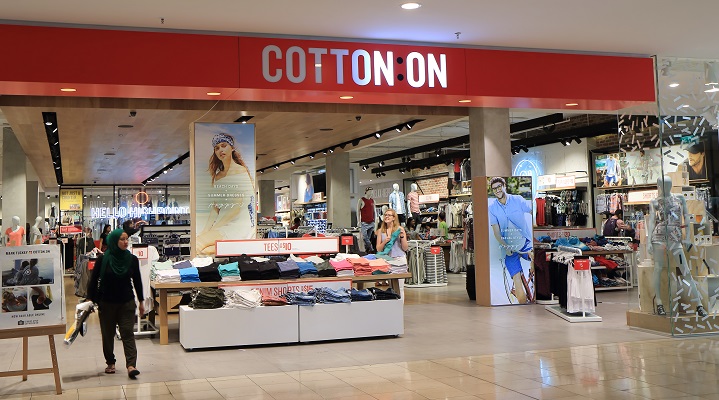At a time when online acquisition costs are rising and the ability to track shoppers via third-party cookies is diminishing, Cotton On Group is bolstering its data capabilities in order to deliver more personalised content to customers and ultimately improve retention rates. The company behind Cotton On, Cotton On Kids, Cotton On Body, Rubi, Typo, Factorie, Supre and Ceres Life announced on Wednesday that it is rolling out a new customer data experience platform from technology provider Lexer
er across all eight of its brands in Australia, New Zealand, Hong Kong, Singapore, Malaysia, South Africa, Brazil, the US and UK.
The platform promises to enable the Australian retail giant to flesh out individual customer profiles with information from its e-commerce site and other sources, and give individual brands the ability to make data-driven decisions about marketing content and spend.
“In terms of the broad benefits, it’s a retention play for us,” Cotton On Group’s general manager of e-commerce Brendan Sweeney told Inside Retail.
“Anything we can do to keep customers shopping with us for longer and get them shopping across more brands and more channels is enormously valuable for us, as it is for any business in a world where the cost of acquiring new customers keeps going up and up and up.”
Sweeney declined to say how much the project will cost, but said it represents a “reasonable” investment due to the complexity of the cross-brand global rollout.
Putting the customer loyalty program to work
The platform is the next step in a journey that began with the 2018 launch of Cotton On Group’s customer loyalty program, Cotton On & Co Perks, which has enabled it to collect a wealth of data on approximately 8 million active customers.
“Compared to a lot of businesses, we’ve actually got pretty good data on who [our customers] are, where they shop, what they buy, how they interact with us across different channels,” Sweeney said.
Now, the company plans to connect that data with information from its website, marketing channels and other sources, such as ratings and reviews, so individual brands can gain deeper insights into customer behaviour.
“Today, our loyalty program sits in our ERP system. If one of the brands came to us and wanted to start segmenting customers, we’d have to write a query to extract that [data], and then match it against our permissions before we could take action on it,” Sweeney said.
With the new platform, brands will be able to access and analyse the data themselves.
“It’s making it much easier to be able to quickly understand the customer segments and behaviours and take action on that. That’s actually quite laborious for us to do today,” he said.
Personalisation key to retaining customers
Sweeney expects the new platform to lead to increased efficiency in the company’s marketing spend.
“We’ll be able to understand how customers are interacting with our emails and push notifications, whether or not they’re active customers, and how often they’re visiting our website or app, and use that to determine the right strategy,” he said.
“If we have a whole bunch of customers who are responding to our emails and visiting our website very regularly, we probably don’t need to spend a lot of money with Google and Facebook. We can either keep that money or reinvest it to accelerate the acquisition of new customers.”
Better content personalisation is another potential benefit.
“Everybody’s been talking about personalisation for a long time, but the reality is, unless you have really great data, and you have the ability to automate it at scale, it’s actually very hard to do,” Sweeney said.
“We’re pretty excited about using this as a core engine that will then link into personalisation capabilities to make sure we’re serving people more relevant, more personalised content across all the digital touch points.”
He believes more personalised marketing and advertising is the key to improving the overall customer experience and, in turn, increasing retention rates.
“We want to deliver a world-class shopping experience in every channel and to be wherever the customer wants to be,” he said. “To do that, it’s actually about being personalised and relevant when the customer interacts with you.”
Founded in Geelong in 1991, Cotton On Group has over 1300 stores in 22 countries and 18,000 team members.
The company reported $1.25 billion in revenue in the year to June 24, 2020, and had EBITDA of $295 million, according to documents lodged with ASIC last year.

